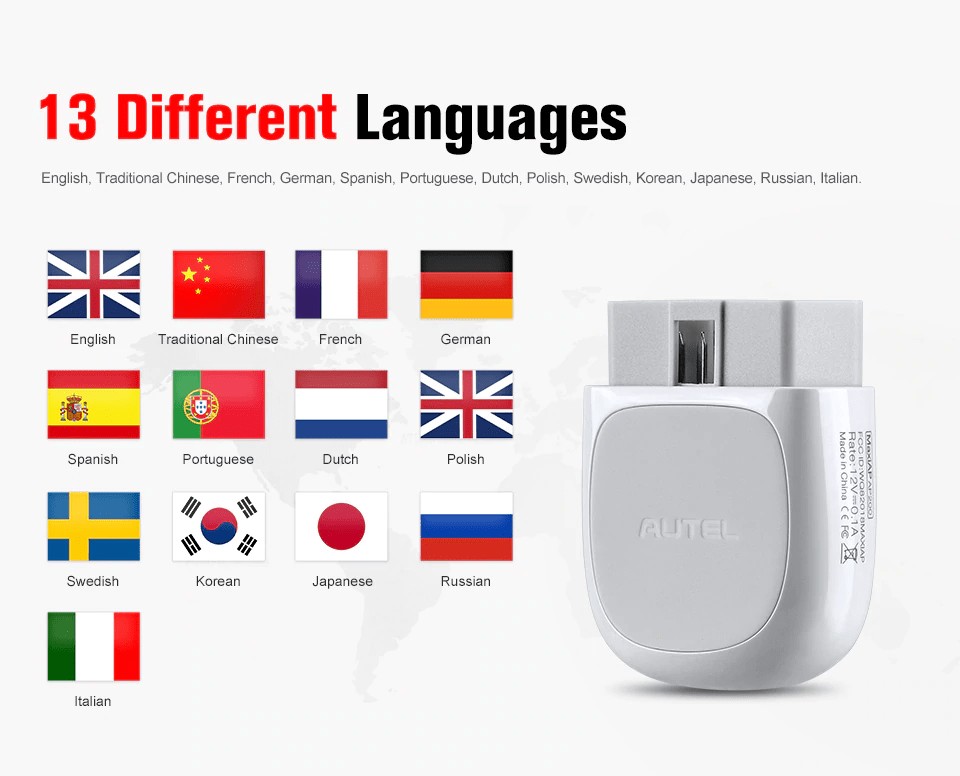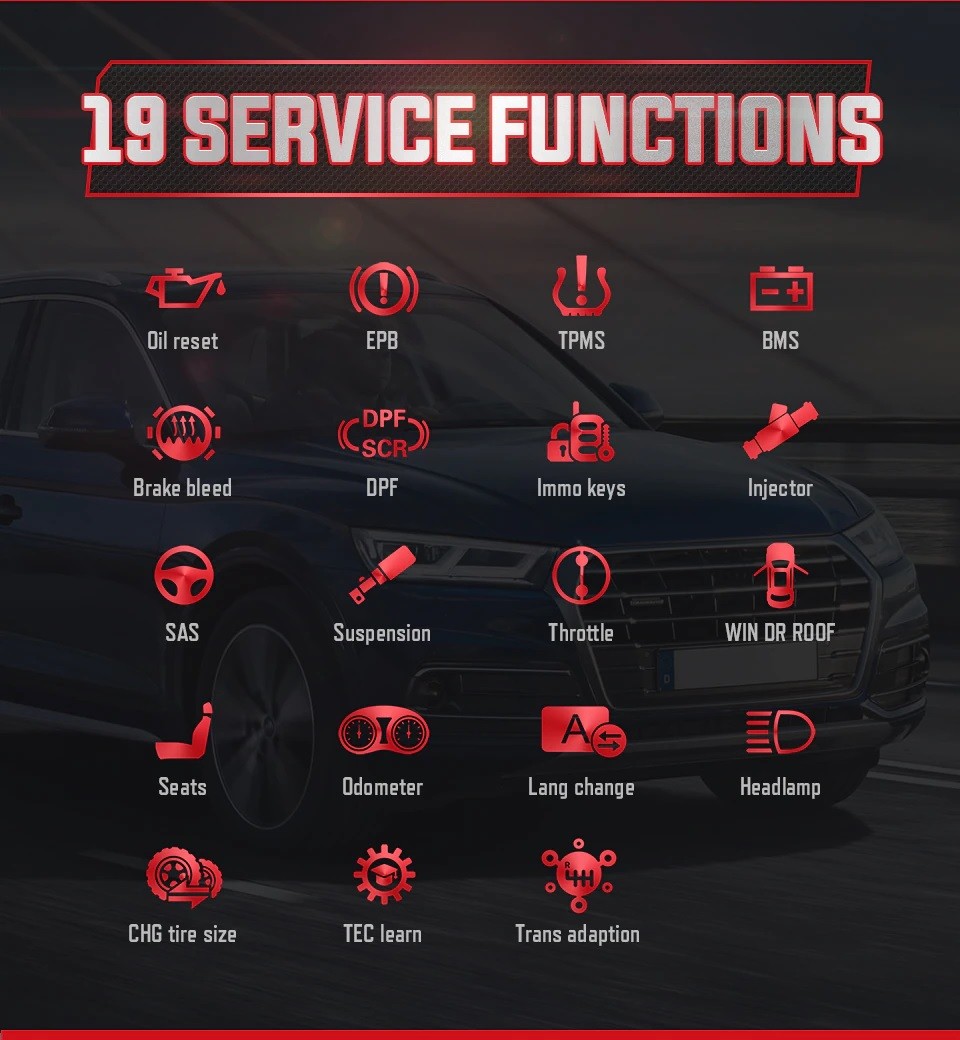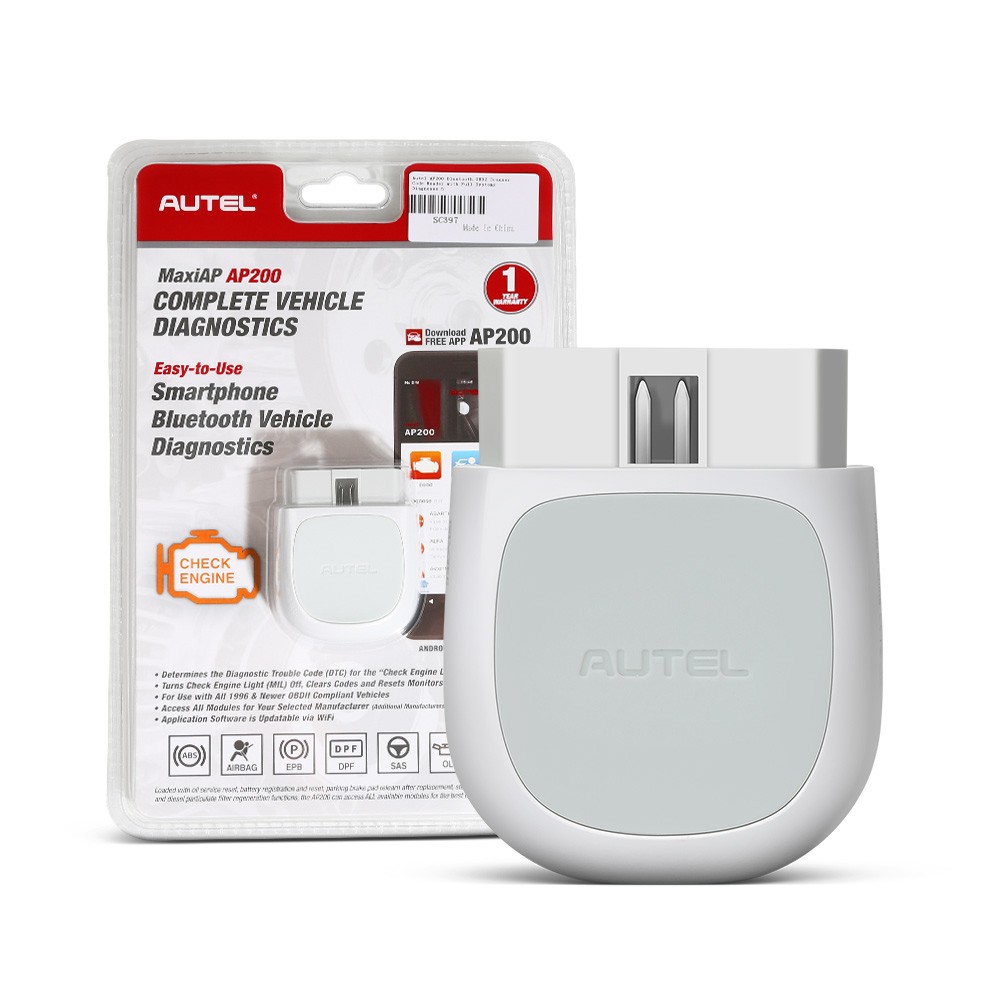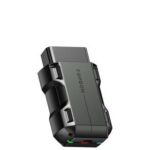Car diagnostic tools in South Africa offer a powerful way to pinpoint vehicle issues quickly and accurately, providing solutions for everyone from DIY enthusiasts to professional mechanics; CAR-TOOL.EDU.VN offers in-depth information on a wide selection of car diagnostic tools, helping you choose the right tool to keep your car running smoothly, enhancing automotive care. This advanced equipment empowers users to understand the complexities beneath the hood, promoting vehicle health and efficient repairs, all while keeping you informed with the latest technological advancements, and providing access to resources such as OBD2 scanners and comprehensive system diagnostics.
Contents
- 1. What Exactly are Car Diagnostic Tools in South Africa?
- 2. What are the Primary Types of Car Diagnostic Tools Available in South Africa?
- 2.1. OBD2 Scanners
- 2.2. Code Readers
- 2.3. Full System Diagnostic Tools
- 2.4. Professional Diagnostic Scanners
- 3. What Core Features Should You Look for in Car Diagnostic Tools in South Africa?
- 3.1. Compatibility with Vehicle Makes and Models
- 3.2. Ease of Use and Interface
- 3.3. Data Accuracy and Reliability
- 3.4. Update Availability
- 3.5. Additional Features (Live Data, Freeze Frame, Component Testing)
- 4. What are the Top Brands of Car Diagnostic Tools in South Africa?
- 4.1. Autel
- 4.2. Launch
- 4.3. Bosch
- 4.4. Thinkcar
- 5. What is the Cost of Car Diagnostic Tools in South Africa?
- 5.1. Budget-Friendly Options (Under ZAR 1,500)
- 5.2. Mid-Range Tools (ZAR 1,500 – ZAR 5,000)
- 5.3. High-End Professional Tools (ZAR 5,000+)
- 6. Where Can You Purchase Car Diagnostic Tools in South Africa?
- 6.1. Online Retailers (Takealot, Bidvest McCarthy)
- 6.2. Auto Parts Stores (Midas, Goldwagen)
- 6.3. Specialized Diagnostic Tool Suppliers
- 7. How Do You Use Car Diagnostic Tools Effectively?
- 7.1. Step-by-Step Guide to Using a Diagnostic Tool
- 7.2. Understanding Diagnostic Trouble Codes (DTCs)
- 7.3. Tips for Accurate Diagnosis
- 8. What are the Common Mistakes to Avoid When Using Car Diagnostic Tools in South Africa?
- 8.1. Misinterpreting Diagnostic Codes
- 8.2. Neglecting Basic Troubleshooting Steps
- 8.3. Failing to Update the Tool’s Software
- 8.4. Ignoring Additional Symptoms
- 9. How Can Car Diagnostic Tools Save You Money in South Africa?
- 9.1. Identifying Minor Issues Early
- 9.2. Performing DIY Repairs
- 9.3. Getting a Second Opinion Before Major Repairs
- 9.4. Avoiding Unnecessary Trips to the Mechanic
- 10. What is the Future of Car Diagnostic Tools in South Africa?
- 10.1. Integration with Mobile Devices and Cloud Services
- 10.2. Advanced Diagnostics and Artificial Intelligence (AI)
- 10.3. Remote Diagnostics and Telematics
- 10.4. Enhanced Cybersecurity Measures
- FAQ: Answering Your Questions About Car Diagnostic Tools in South Africa
- 1. What type of car diagnostic tool is best for a beginner in South Africa?
- 2. Can car diagnostic tools in South Africa be used on any vehicle?
- 3. How often should I use a car diagnostic tool on my vehicle in South Africa?
- 4. Do I need to be a mechanic to use car diagnostic tools effectively in South Africa?
- 5. Are there any free car diagnostic apps available in South Africa?
- 6. What is the difference between an OBD2 scanner and a full system diagnostic tool in South Africa?
- 7. How do I update the software on my car diagnostic tool in South Africa?
- 8. Can car diagnostic tools in South Africa clear airbag warning lights?
- 9. What are the essential features to look for in a car diagnostic tool in South Africa?
- 10. Where can I find reliable information about car diagnostic tools in South Africa?
1. What Exactly are Car Diagnostic Tools in South Africa?
Car diagnostic tools in South Africa are electronic devices used to interface with a vehicle’s onboard computer system to identify and troubleshoot problems. They connect to the vehicle’s OBD2 port, read diagnostic trouble codes (DTCs), and provide insights into the vehicle’s overall health. According to a 2022 report by Research and Markets, the automotive diagnostic scan tools market is expected to reach $9.1 billion by 2027, demonstrating the increasing reliance on these tools for vehicle maintenance.
- Definition: Car diagnostic tools are devices that read and interpret data from a vehicle’s computer system to diagnose issues.
- Function: They connect to the vehicle’s OBD2 port to access diagnostic trouble codes (DTCs) and other vehicle health information.
- Importance: These tools are essential for accurate and efficient vehicle maintenance and repairs.
2. What are the Primary Types of Car Diagnostic Tools Available in South Africa?
The South African market offers a variety of car diagnostic tools, each designed for specific needs and capabilities. These range from basic OBD2 scanners for simple code reading to advanced, professional-grade diagnostic systems.
2.1. OBD2 Scanners
OBD2 scanners are the most basic type, designed to read and clear diagnostic trouble codes (DTCs). They are user-friendly and suitable for DIY enthusiasts. According to a study by the National Institute for Automotive Service Excellence (ASE), understanding OBD2 codes can help car owners address minor issues early, preventing more significant problems.
- Function: Read and clear diagnostic trouble codes (DTCs).
- Target User: DIY enthusiasts and car owners.
- Benefits: User-friendly and cost-effective.
2.2. Code Readers
Code readers are similar to OBD2 scanners but often provide more detailed information about the DTCs. They can help pinpoint the exact location and nature of the problem. Popular Mechanics highlights that having a code reader can save time and money by providing a preliminary diagnosis before visiting a mechanic.
- Function: Provide detailed information about DTCs.
- Target User: Car owners and hobbyists.
- Benefits: Offer deeper insights into vehicle issues.
2.3. Full System Diagnostic Tools
Full system diagnostic tools offer comprehensive diagnostics, accessing all vehicle systems, including engine, transmission, ABS, and airbags. These are typically used by professional mechanics for thorough vehicle assessments. According to Automotive Engineering International, these tools are essential for diagnosing complex issues in modern vehicles.
- Function: Access all vehicle systems for comprehensive diagnostics.
- Target User: Professional mechanics.
- Benefits: Thorough vehicle assessments.
2.4. Professional Diagnostic Scanners
Professional diagnostic scanners are advanced tools with extensive capabilities, including live data streaming, component testing, and advanced programming. They are designed for professional workshops and require specialized training to use effectively. SAE International notes that professional scanners are crucial for keeping up with the increasing complexity of automotive technology.
- Function: Offer advanced capabilities such as live data streaming and component testing.
- Target User: Professional workshops.
- Benefits: Designed for complex vehicle diagnostics and repairs.
3. What Core Features Should You Look for in Car Diagnostic Tools in South Africa?
When selecting car diagnostic tools in South Africa, several key features can significantly impact their effectiveness and usability.
3.1. Compatibility with Vehicle Makes and Models
Ensure the tool is compatible with a wide range of vehicle makes and models commonly found in South Africa. J.D. Power reports that compatibility is a primary concern for users, as it directly affects the tool’s usability across different vehicles.
- Importance: Ensures the tool can be used on various vehicles.
- Recommendation: Check the tool’s vehicle coverage list before purchasing.
3.2. Ease of Use and Interface
A user-friendly interface is essential, especially for DIY users. The tool should have an intuitive menu, clear display, and easy navigation. According to a survey by Consumer Reports, ease of use is a significant factor in user satisfaction with diagnostic tools.
- Importance: Makes the tool accessible to users of all skill levels.
- Recommendation: Look for tools with intuitive menus and clear displays.
3.3. Data Accuracy and Reliability
The accuracy of the data provided by the tool is critical for effective diagnostics. Reliable tools provide precise readings and accurate diagnostic trouble codes (DTCs). Underwriters Laboratories (UL) certification can indicate the tool’s reliability and accuracy.
- Importance: Ensures accurate diagnoses and effective repairs.
- Recommendation: Choose tools with certifications for reliability.
3.4. Update Availability
Regular software updates are crucial to keep the tool compatible with the latest vehicle models and diagnostic protocols. A tool with update availability ensures it remains relevant and effective over time. IEEE emphasizes the importance of regular updates for maintaining the functionality of diagnostic tools.
- Importance: Keeps the tool compatible with new vehicle models and diagnostic protocols.
- Recommendation: Check for tools with regular and easy-to-install updates.
3.5. Additional Features (Live Data, Freeze Frame, Component Testing)
Advanced features such as live data streaming, freeze frame data, and component testing can significantly enhance the diagnostic process. These features provide deeper insights into vehicle performance and can help pinpoint intermittent issues. Bosch Automotive Handbook highlights these features as essential for comprehensive diagnostics.
- Importance: Provides deeper insights into vehicle performance.
- Recommendation: Look for tools with live data, freeze frame, and component testing capabilities.
 OBD2 Scanner
OBD2 Scanner
4. What are the Top Brands of Car Diagnostic Tools in South Africa?
Several brands are recognized for their quality and reliability in the South African market.
4.1. Autel
Autel is a leading brand known for its comprehensive diagnostic tools, ranging from basic OBD2 scanners to advanced professional-grade systems. Autel tools are praised for their wide vehicle coverage and user-friendly interfaces.
- Product Range: OBD2 scanners, full system diagnostic tools, and professional scanners.
- Strengths: Wide vehicle coverage and user-friendly interfaces.
- Target User: DIY enthusiasts and professional mechanics.
4.2. Launch
Launch is another popular brand, offering a variety of diagnostic tools known for their advanced features and robust performance. Launch tools are often used in professional workshops for their extensive capabilities.
- Product Range: OBD2 scanners, full system diagnostic tools, and professional scanners.
- Strengths: Advanced features and robust performance.
- Target User: Professional workshops.
4.3. Bosch
Bosch is a well-respected brand in the automotive industry, offering reliable and accurate diagnostic tools. Bosch tools are known for their high-quality construction and comprehensive diagnostic capabilities.
- Product Range: OBD2 scanners, full system diagnostic tools, and professional scanners.
- Strengths: High-quality construction and comprehensive diagnostic capabilities.
- Target User: Professional mechanics and automotive technicians.
4.4. Thinkcar
Thinkcar is a newer brand gaining popularity for its innovative diagnostic tools and affordable prices. Thinkcar tools are designed to be user-friendly and offer a good balance of features and cost.
- Product Range: OBD2 scanners, full system diagnostic tools, and professional scanners.
- Strengths: User-friendly design and affordable prices.
- Target User: DIY enthusiasts and budget-conscious professionals.
5. What is the Cost of Car Diagnostic Tools in South Africa?
The cost of car diagnostic tools in South Africa varies widely depending on the type, features, and brand.
5.1. Budget-Friendly Options (Under ZAR 1,500)
These are typically basic OBD2 scanners and code readers suitable for simple diagnostics and clearing DTCs. They are ideal for DIY users and car owners who want to perform basic maintenance.
- Features: Basic code reading and clearing.
- Target User: DIY users and car owners.
- Brands: Thinkcar, basic Autel models.
5.2. Mid-Range Tools (ZAR 1,500 – ZAR 5,000)
Mid-range tools offer more advanced features, such as live data streaming and access to additional vehicle systems. They are suitable for more experienced DIY users and small repair shops.
- Features: Live data streaming and access to additional vehicle systems.
- Target User: Experienced DIY users and small repair shops.
- Brands: Autel, Launch (entry-level models).
5.3. High-End Professional Tools (ZAR 5,000+)
These are professional-grade diagnostic scanners with extensive capabilities, including component testing, advanced programming, and comprehensive vehicle coverage. They are designed for professional workshops and require specialized training.
- Features: Component testing, advanced programming, and comprehensive vehicle coverage.
- Target User: Professional workshops and automotive technicians.
- Brands: Autel, Launch, Bosch.
6. Where Can You Purchase Car Diagnostic Tools in South Africa?
Car diagnostic tools can be purchased from various sources in South Africa, each offering different benefits.
6.1. Online Retailers (Takealot, Bidvest McCarthy)
Online retailers offer a wide selection of tools, competitive prices, and the convenience of shopping from home. Takealot and Bidvest McCarthy are popular online platforms in South Africa.
- Benefits: Wide selection, competitive prices, and convenience.
- Considerations: Check product reviews and seller ratings.
6.2. Auto Parts Stores (Midas, Goldwagen)
Auto parts stores provide expert advice, hands-on demonstrations, and the opportunity to see the tools in person before purchasing. Midas and Goldwagen are well-known auto parts chains in South Africa.
- Benefits: Expert advice and hands-on demonstrations.
- Considerations: Prices may be higher compared to online retailers.
6.3. Specialized Diagnostic Tool Suppliers
Specialized suppliers focus specifically on diagnostic tools and offer a wide range of options, expert advice, and after-sales support. These suppliers are ideal for professional mechanics and workshops.
- Benefits: Wide range of options and expert advice.
- Considerations: May have higher prices, but offer specialized support.
 Autel MaxiAP AP200 special functions
Autel MaxiAP AP200 special functions
7. How Do You Use Car Diagnostic Tools Effectively?
Using car diagnostic tools effectively requires a systematic approach and a basic understanding of vehicle systems.
7.1. Step-by-Step Guide to Using a Diagnostic Tool
- Connect the Tool: Plug the diagnostic tool into the vehicle’s OBD2 port, usually located under the dashboard.
- Turn on the Ignition: Turn the ignition key to the “on” position without starting the engine.
- Power on the Tool: Turn on the diagnostic tool and follow the on-screen instructions.
- Read Diagnostic Trouble Codes (DTCs): Select the “Read Codes” or “Diagnostic Scan” option to retrieve any stored DTCs.
- Interpret the Codes: Use the tool’s built-in database or an online resource to interpret the meaning of the DTCs.
- Perform Repairs: Based on the diagnostic information, perform the necessary repairs or maintenance.
- Clear the Codes: After completing the repairs, select the “Clear Codes” option to reset the vehicle’s computer system.
- Verify the Repair: Start the engine and monitor the vehicle’s performance to ensure the issue has been resolved.
7.2. Understanding Diagnostic Trouble Codes (DTCs)
DTCs are standardized codes used to identify specific issues within a vehicle’s systems. Each code consists of five characters: a letter indicating the system (e.g., P for Powertrain, B for Body, C for Chassis, U for Network), followed by four numbers indicating the specific fault. SAE J2012 provides a comprehensive list of DTCs and their meanings.
7.3. Tips for Accurate Diagnosis
- Consult the Vehicle’s Repair Manual: Refer to the vehicle’s repair manual for specific diagnostic procedures and repair instructions.
- Verify the Symptoms: Confirm that the symptoms match the DTCs to ensure an accurate diagnosis.
- Check for Technical Service Bulletins (TSBs): Review TSBs issued by the manufacturer for known issues and recommended solutions.
- Use Additional Resources: Utilize online forums, diagnostic databases, and professional networks for additional support and information.
8. What are the Common Mistakes to Avoid When Using Car Diagnostic Tools in South Africa?
Several common mistakes can lead to inaccurate diagnoses and ineffective repairs.
8.1. Misinterpreting Diagnostic Codes
Misinterpreting DTCs is a common mistake, especially for inexperienced users. Always refer to reliable resources and the vehicle’s repair manual for accurate interpretations.
- Mistake: Assuming a code directly indicates the faulty component without further investigation.
- Solution: Use the DTC as a starting point and perform additional tests to pinpoint the exact cause of the problem.
8.2. Neglecting Basic Troubleshooting Steps
Ignoring basic troubleshooting steps, such as checking fuses, wiring, and connections, can lead to unnecessary repairs. Always perform a thorough inspection before replacing any components.
- Mistake: Replacing parts without verifying basic electrical and mechanical components.
- Solution: Check fuses, wiring, and connections before replacing any parts.
8.3. Failing to Update the Tool’s Software
Using outdated software can result in inaccurate readings and compatibility issues. Ensure the tool is regularly updated to maintain its accuracy and effectiveness.
- Mistake: Using outdated software that does not support the latest vehicle models and diagnostic protocols.
- Solution: Regularly update the tool’s software to ensure compatibility and accuracy.
8.4. Ignoring Additional Symptoms
Focusing solely on the DTCs and ignoring other symptoms can lead to incomplete diagnoses. Consider all available information, including the vehicle’s performance, noises, and smells.
- Mistake: Ignoring additional symptoms that may provide clues to the underlying problem.
- Solution: Consider all available information, including the vehicle’s performance and any unusual symptoms.
9. How Can Car Diagnostic Tools Save You Money in South Africa?
Investing in car diagnostic tools can lead to significant cost savings in the long run.
9.1. Identifying Minor Issues Early
Diagnostic tools allow you to identify minor issues early, before they escalate into more expensive problems. Addressing issues promptly can prevent costly repairs and extend the life of your vehicle.
- Benefit: Early detection of problems prevents costly repairs.
- Example: Identifying a faulty sensor before it causes engine damage.
9.2. Performing DIY Repairs
With a diagnostic tool, you can perform many repairs yourself, saving on labor costs at a repair shop. Basic maintenance tasks, such as replacing sensors and clearing codes, can be easily انجام شده at home.
- Benefit: Saves on labor costs by enabling DIY repairs.
- Example: Replacing a faulty oxygen sensor at home instead of paying a mechanic.
9.3. Getting a Second Opinion Before Major Repairs
Before committing to major repairs, a diagnostic tool can provide a second opinion, ensuring the mechanic’s diagnosis is accurate. This can prevent unnecessary repairs and save you money on parts and labor.
- Benefit: Provides a second opinion to ensure accurate diagnoses.
- Example: Verifying a mechanic’s diagnosis before replacing an expensive component.
9.4. Avoiding Unnecessary Trips to the Mechanic
By diagnosing and resolving minor issues yourself, you can avoid unnecessary trips to the mechanic, saving time and money. A diagnostic tool empowers you to take control of your vehicle maintenance.
- Benefit: Reduces the need for frequent visits to the mechanic.
- Example: Clearing a minor engine code without going to a repair shop.
 Autel MaxiAP AP200 package list
Autel MaxiAP AP200 package list
10. What is the Future of Car Diagnostic Tools in South Africa?
The future of car diagnostic tools in South Africa is promising, with ongoing advancements in technology and increasing demand for sophisticated diagnostic solutions.
10.1. Integration with Mobile Devices and Cloud Services
Diagnostic tools are increasingly integrating with mobile devices and cloud services, offering enhanced functionality and convenience. Mobile apps allow users to access diagnostic data, perform remote diagnostics, and receive real-time alerts. Ericsson predicts that connected car services will continue to grow, driving demand for integrated diagnostic solutions.
- Trend: Integration with mobile devices and cloud services.
- Benefit: Enhanced functionality and convenience.
10.2. Advanced Diagnostics and Artificial Intelligence (AI)
AI is being integrated into diagnostic tools to provide more accurate diagnoses and predictive maintenance capabilities. AI algorithms can analyze vast amounts of data to identify patterns and predict potential failures, allowing for proactive maintenance. According to McKinsey, AI-powered diagnostics can significantly improve vehicle uptime and reduce maintenance costs.
- Trend: Integration of AI for advanced diagnostics and predictive maintenance.
- Benefit: More accurate diagnoses and proactive maintenance.
10.3. Remote Diagnostics and Telematics
Remote diagnostics and telematics are becoming increasingly common, allowing technicians to diagnose and repair vehicles remotely. This technology is particularly useful for fleet management and remote areas where access to repair shops is limited. Allied Market Research projects significant growth in the telematics market, driven by the demand for remote diagnostic services.
- Trend: Remote diagnostics and telematics for remote vehicle monitoring and repair.
- Benefit: Convenient and efficient diagnostics for remote areas and fleet management.
10.4. Enhanced Cybersecurity Measures
As vehicles become more connected, cybersecurity is a growing concern. Future diagnostic tools will incorporate enhanced cybersecurity measures to protect vehicle systems from unauthorized access and cyber threats. NIST emphasizes the importance of cybersecurity in automotive systems to prevent potential safety and security risks.
- Trend: Enhanced cybersecurity measures to protect vehicle systems.
- Benefit: Protection against unauthorized access and cyber threats.
Are car diagnostic tools in South Africa worth the investment? Absolutely, especially when you’re equipped with the right knowledge. At CAR-TOOL.EDU.VN, we provide comprehensive information on car diagnostic tools, helping you make informed decisions and choose the best tools for your needs. Whether you’re a professional mechanic or a DIY enthusiast, our resources will guide you in maintaining your vehicle efficiently and effectively.
Ready to take control of your vehicle’s health? Contact us at 456 Elm Street, Dallas, TX 75201, United States, or WhatsApp us at +1 (641) 206-8880. Visit our website at CAR-TOOL.EDU.VN for more information and expert advice.
FAQ: Answering Your Questions About Car Diagnostic Tools in South Africa
1. What type of car diagnostic tool is best for a beginner in South Africa?
For beginners, a basic OBD2 scanner is the best choice. It’s user-friendly and provides essential information like diagnostic trouble codes (DTCs), which can help you understand common car issues. Brands like Autel and Thinkcar offer affordable and easy-to-use models that are perfect for getting started.
2. Can car diagnostic tools in South Africa be used on any vehicle?
Most car diagnostic tools are designed to be compatible with a wide range of vehicles. However, it’s essential to check the tool’s compatibility list to ensure it works with your specific make and model. Professional-grade tools typically offer broader compatibility than basic models.
3. How often should I use a car diagnostic tool on my vehicle in South Africa?
You should use a car diagnostic tool whenever you notice unusual symptoms or warning lights on your dashboard. Regular checks can help identify minor issues before they become major problems, saving you time and money in the long run.
4. Do I need to be a mechanic to use car diagnostic tools effectively in South Africa?
No, you don’t need to be a mechanic to use basic car diagnostic tools. However, understanding the diagnostic trouble codes (DTCs) and knowing how to interpret the results is crucial. Online resources, repair manuals, and communities like CAR-TOOL.EDU.VN can provide valuable guidance.
5. Are there any free car diagnostic apps available in South Africa?
Yes, there are free car diagnostic apps available, but their functionality is often limited. These apps typically require a compatible OBD2 adapter to connect to your vehicle. While they can be useful for basic code reading, they may not offer the advanced features of dedicated diagnostic tools.
6. What is the difference between an OBD2 scanner and a full system diagnostic tool in South Africa?
An OBD2 scanner is designed to read and clear basic diagnostic trouble codes (DTCs) related to the engine and emissions system. A full system diagnostic tool, on the other hand, can access all vehicle systems, including engine, transmission, ABS, airbags, and more, providing a more comprehensive diagnostic assessment.
7. How do I update the software on my car diagnostic tool in South Africa?
Most car diagnostic tools come with software update capabilities. You can usually update the software by connecting the tool to your computer via USB or through a Wi-Fi connection. Check the manufacturer’s instructions for specific update procedures.
8. Can car diagnostic tools in South Africa clear airbag warning lights?
Yes, many full system diagnostic tools can clear airbag warning lights. However, it’s crucial to address the underlying issue that triggered the warning light before clearing the code to ensure your vehicle’s safety systems are functioning correctly.
9. What are the essential features to look for in a car diagnostic tool in South Africa?
Essential features to look for include compatibility with your vehicle, ease of use, data accuracy, update availability, and additional features like live data streaming, freeze frame data, and component testing.
10. Where can I find reliable information about car diagnostic tools in South Africa?
You can find reliable information about car diagnostic tools on websites like CAR-TOOL.EDU.VN, which offer expert advice, product reviews, and buying guides. Additionally, automotive forums, repair manuals, and professional networks can provide valuable insights.
